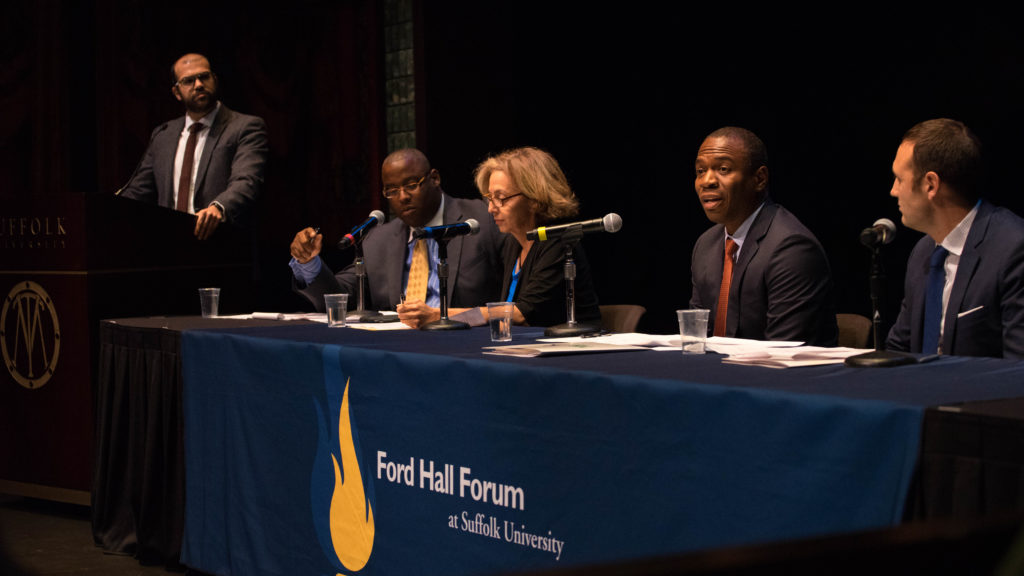By Max Leonov, news correspondent
A Town Hall discussion provided information on Massachusetts ballot Question 2 which, if approved, would let state education officials approve up to 12 new charter schools per year indefinitely. Specifically, the Oct. 20 forum discussed the impact Question 2 would have on issues such as public school funding, special education and the achievement gap for students of color.
During the Town Hall, which was held at Suffolk University, a panel of education activists agreed that they would like to see the students of Boston go to the best schools possible but were divided on what that meant. Boston residents attended the Town Hall to become more informed on Question 2 before voting on it.
The panel consisted of representatives from the City of Boston and charter schools to provide information and give their arguments for and against the charter school initiative.
Panelists opposing the ballot initiative were City Councilor Tito Jackson (D-7) and Harneed Chernow, a Boston Public Schools (BPS) parent and former member of the Massachusetts Board of Elementary and Secondary Education.
Panelists supporting Question 2 were Shane Dunn, the Coalitions Director for Great Schools Massachusetts, and Thabiti Brown, who is the principal of Codman Academy Charter School.
Brown said that children of color have been failed by this country for generations and that regular public schools are not high quality, while public charter schools are consistently performing on a higher level.
“If this ballot does not pass what will be the fate for parents who are seeking quality choices for education?” Dorchester resident Julia Mejia said during public comments. Mejia is also the director of Family and Community Engagement for the Massachusetts Charter Public School Association, but said that she graduated from BPS and cares about the future of education in her neighborhood.
Chernow said that the comparison between charter schools and public schools was simply unfair, adding that charter schools serve only 4 percent of the community and oftentimes neglect the most vulnerable students like those who are homeless or have special needs.
“Charter schools don’t automatically have a better outcome than public schools,” Chernow said. “Many are the same and some are worse. […]15 percent are operating on probation.”
Chernow said that some charter schools are failing, but those schools are difficult for the state to shut down. She cited that only five have been closed by the state.
She attributed this to the autonomous nature of charter schools, which have their own Board of Directors, unlike the Boston public schools which are controlled directly by the state and local governments. Jackson agreed with her.
“Local control is important. It’s democracy. It’s what we do in Massachusetts,” Jackson said.
In response, Brown said that charter schools are more efficient because of how they operate.
“Local government has not been effective in governing local schools,” Brown said. “Charter schools were created to avoid that, to be autonomous.”
For Fiscal Year 2016, the City of Boston received $215 million, which was then divided between public schools and public charter schools, Jackson said.
Currently $175 million of the $215 million goes towards funding charter schools and the rest goes to Boston Public Schools.
Still, Brown argued that the debate is not about funding one type of school or the other, but about giving students the option to receive the best education possible.
“I’m interested in the subject of charter schools and I have not made up my mind on this particular ballot initiative,” said Back Bay resident Donald Mattes.
Photo by Alex Melagrano









